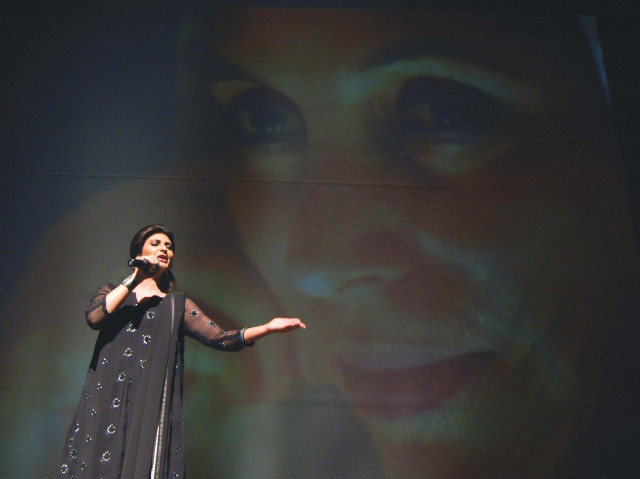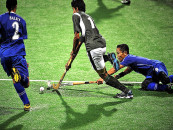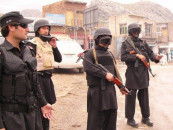Womanly affair: Sharing memories of tyrannical era
Women in rural areas were not forgotten on the eve of National Women’s Day.

Womanly affair: Sharing memories of tyrannical era
“Instead of celebrating women’s day in cities, we should go to the rural areas and make the women there aware of their rights as human beings,” suggested Chairperson of National Assembly Standing Committee on Law and Justice Naseem Chaudhry, talking at the Pakistan National Council of the Arts on Friday.
“The main reason behind the increase in violence against women is that they are illiterate. So they easily become victims of social taboos,” Chaudhry said, adding, “It is impossible to completely eliminate violence against women, but there is a dire need to educate our men.”
She was making these observations at an event organised by the National Commission on Status of Women (NCSW) in collaboration with Potohar Organization for Development Advocacy, Aurat Foundation and Pakistan Television to celebrate February 12.
Last year, the government declared this day as National Women’s Day. On the same day in 1983, women took to the streets to protest and challenge the promulgation of the Law of Evidence by the military dictator Ziaul Haq.
Sharing her experiences of that fateful day, Executive Director Sungi Development Foundation Samina Khan said, “I reached the spot from where the protest had to begin with full confidence. But when I saw the batons of the women police waving at us, my legs began to shake and my heart started pounding.”
Khan was among one of those courageous women who actively participated in the protest and faced various forms of police brutality.
“As we reached Mall Road, we found ourselves in a battle field as the police started shelling us with tear gas. We were all taken to a police station,” she said.
Shahnaz Wazir Ali, Special Adviser to the Prime Minister on Social Sector told the gathering, “I remember it was a time when we did not even have an office where we could gather and plan our fight for our rights. We only had a box which contained newspaper clippings and some important documents.”
She added,“It was and still is a long journey. Our women should be aware of their rights and confident enough to fight for them.”
Rehana from Chakwal said that she belonged to a village where there was no concept of women’s education. Yet, she was forced by her family to stand in local elections.”They used me to get the seat. I did not know how to fight for the rights of others.”
Nasreen Nasir from G-B, who was honoured with Tamgha-e-Shujaat for saving the lives of 23 officials during clashes in her region, said that the award was a true honour for her as it is almost always men who are considered for it.
Suraiya Mansoor from Gujarnwala, upon deciding to contest elections, was insensitively questioned by her counsellor, “Have you seen your face in the mirror?”
NCSW Chairperson Anis Haroon said it was very unfortunate that some people always brought religion into any discussion of women’s rights. She stressed the need for more family and women protection laws to empower women.
Renowned’ activist Tahira Abdullah said, “The women’s rights movement is in a sad situation of one step forward and two steps back. People are afraid to talk about discriminatory and unjust laws.”
To end, they ensured full commitment and unity for their fight, followed by a rendition of “hum dekhein ge” by Fareeha Pervez.
Chaley chalo ki woh manzil abhi nahi ayee
Long road ahead
Shehnaz Wazir Ali, Special Adviser to the Prime Minister on Social Sector: “It was and still is a long journey. I believe in democracy. Our country’s women should be well aware of their rights and should be confident enough to fight for them”
Why only in cities?
Naseem Chaudhry, Chairperson of National Assembly Standing committee on Law and Justice: “Instead of celebrating Women’s Day in big cities, we should go to the rural areas and make the women there aware of their rights as human beings.”
Muddled discourse
Anees Haroon Chairperson NCSW: It is very unfortunate that some people always bring religion into any discussion of women’s rights. She stressed the need for more family and women protection laws to empower women.
Hopscotch
Tahira Abdullah, well-know rights activist: The women’s rights movement is in a sad situation of one step forward and two steps back. People are afraid to talk about discriminatory and unjust laws.
Published in The Express Tribune, February 12th, 2011.



















COMMENTS
Comments are moderated and generally will be posted if they are on-topic and not abusive.
For more information, please see our Comments FAQ